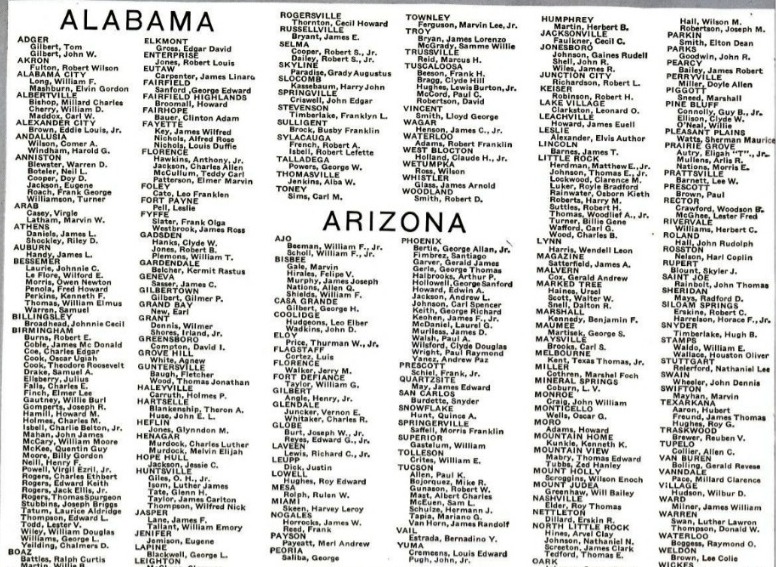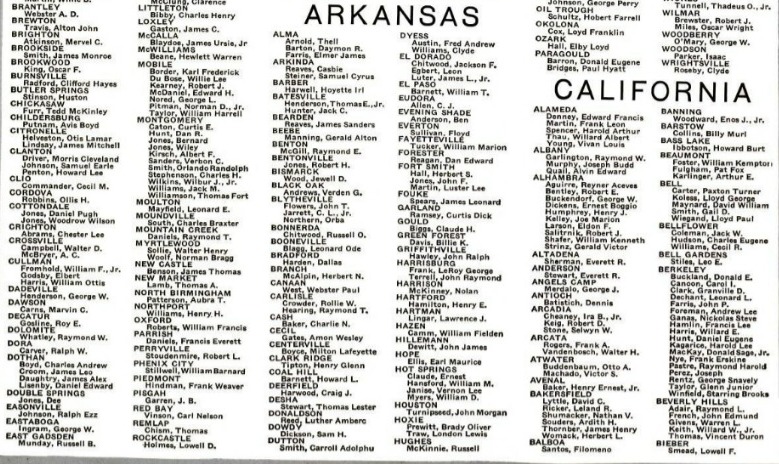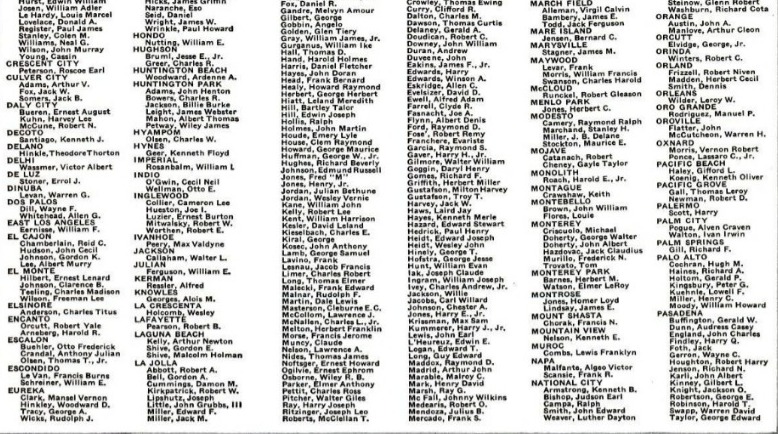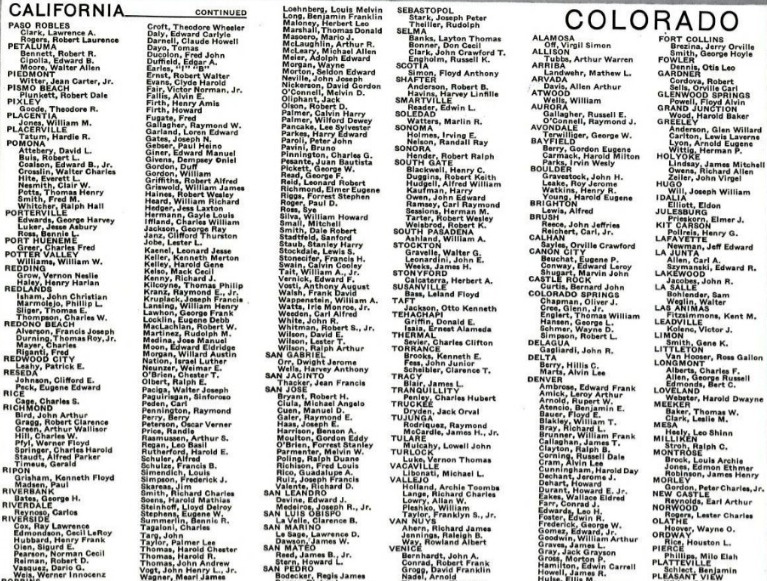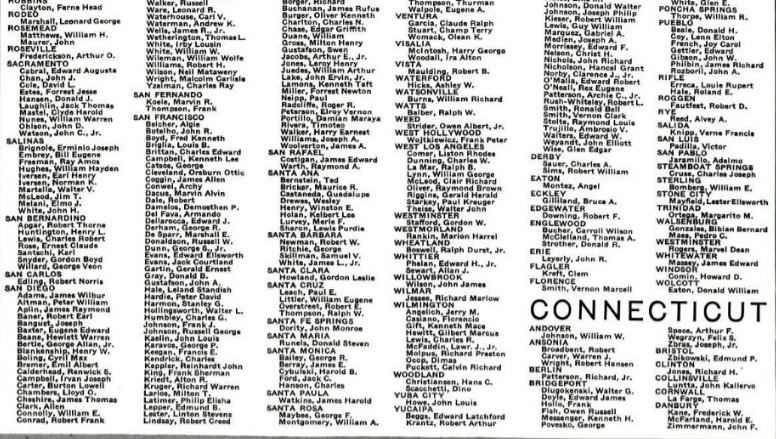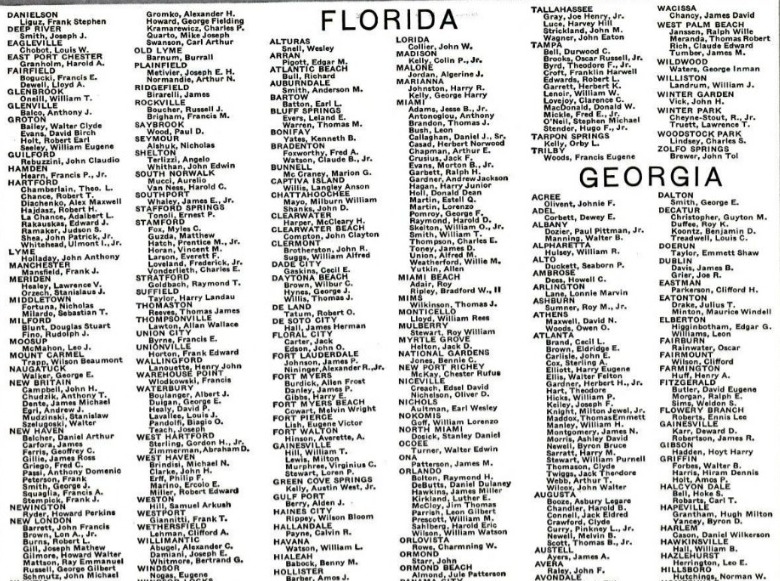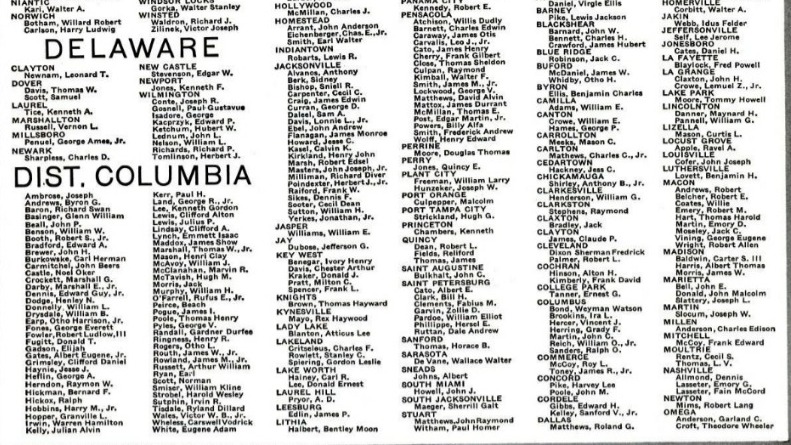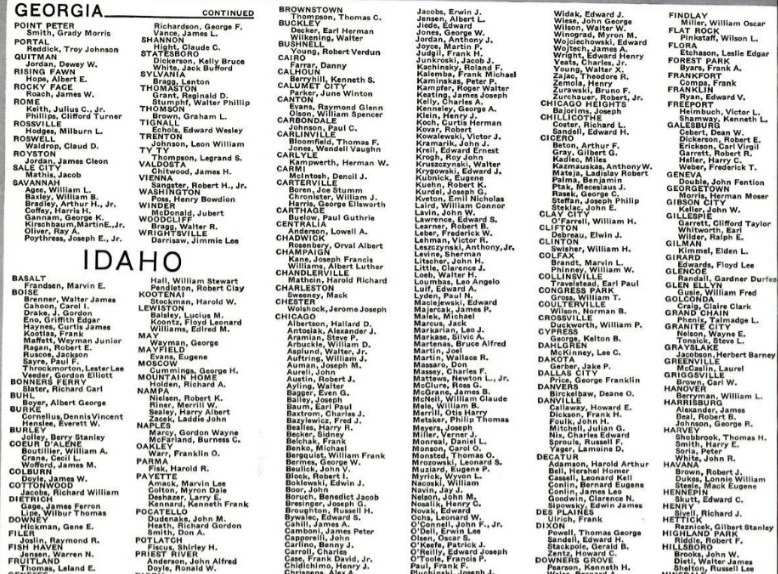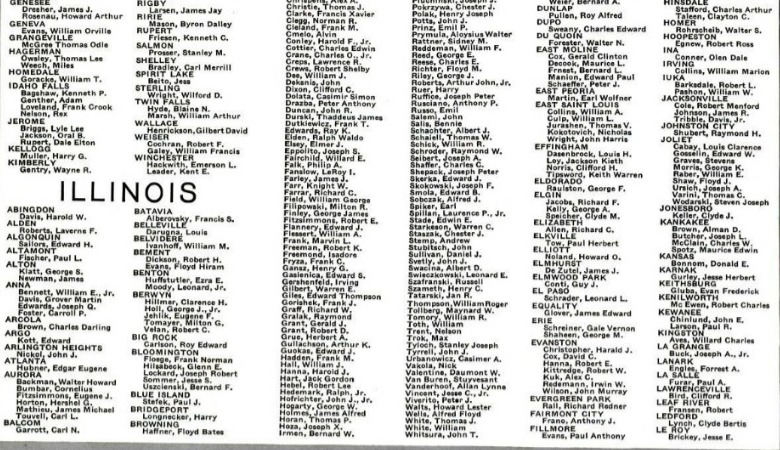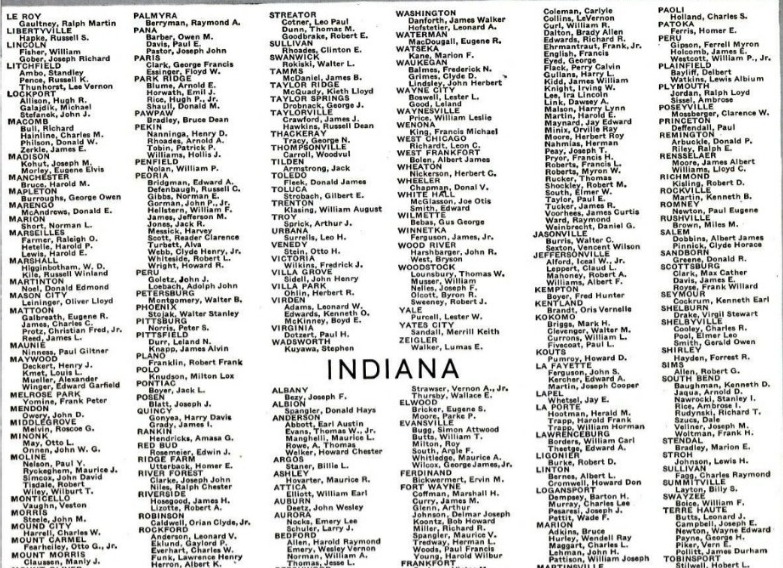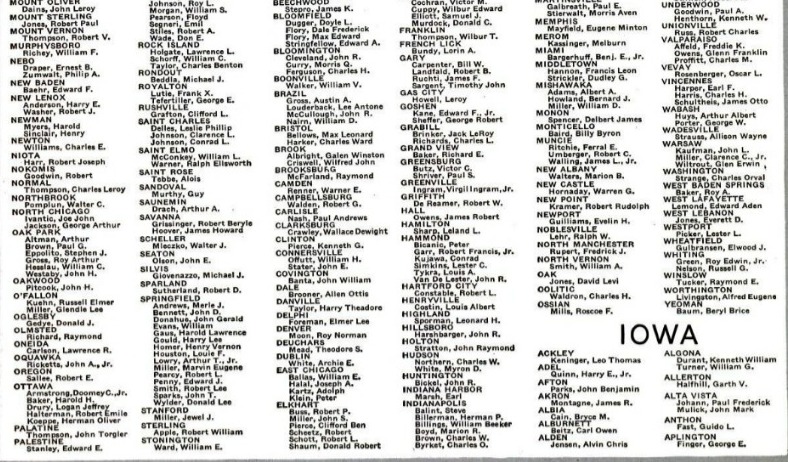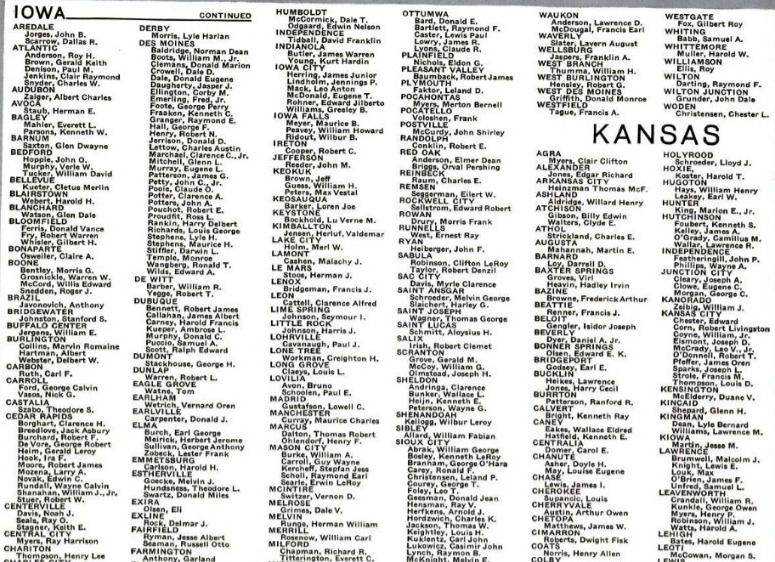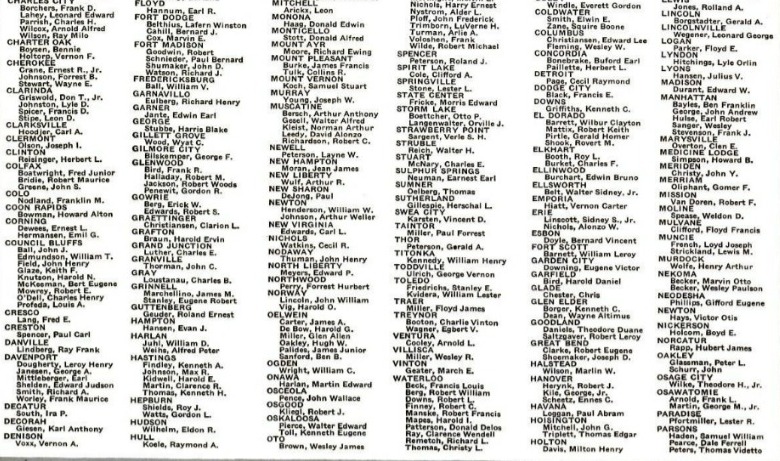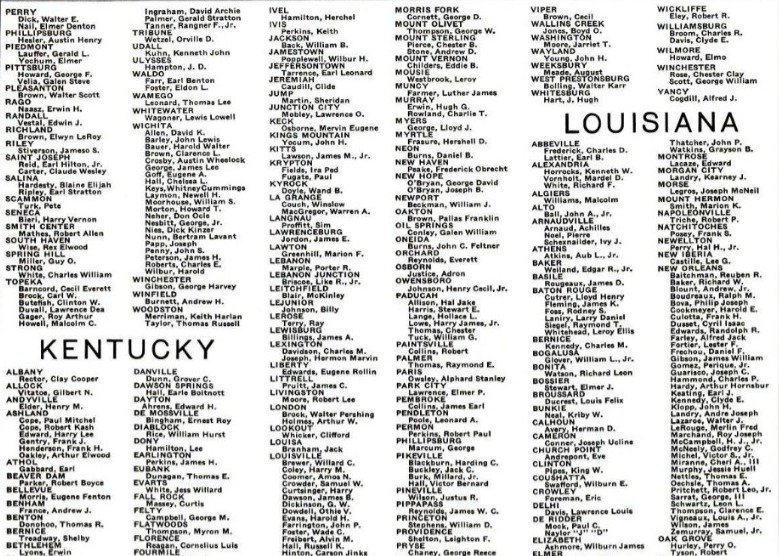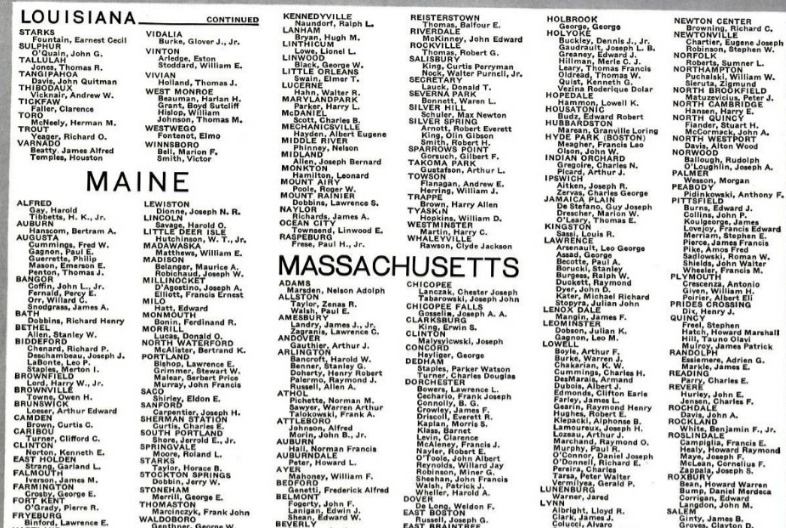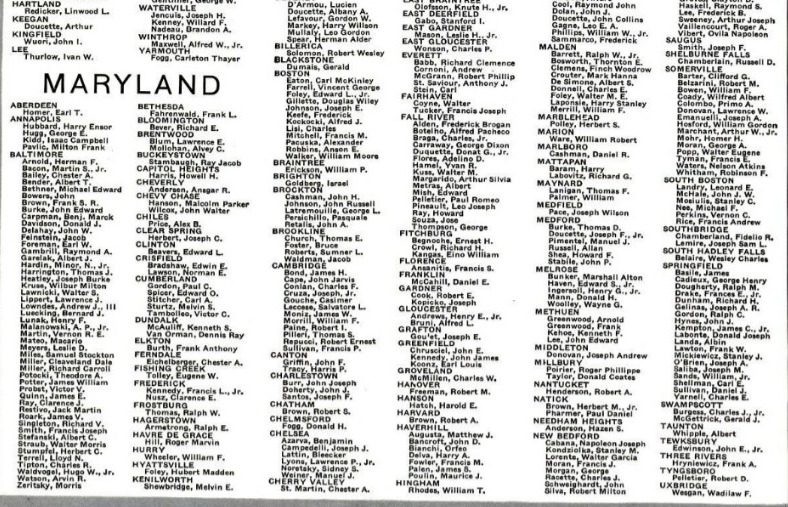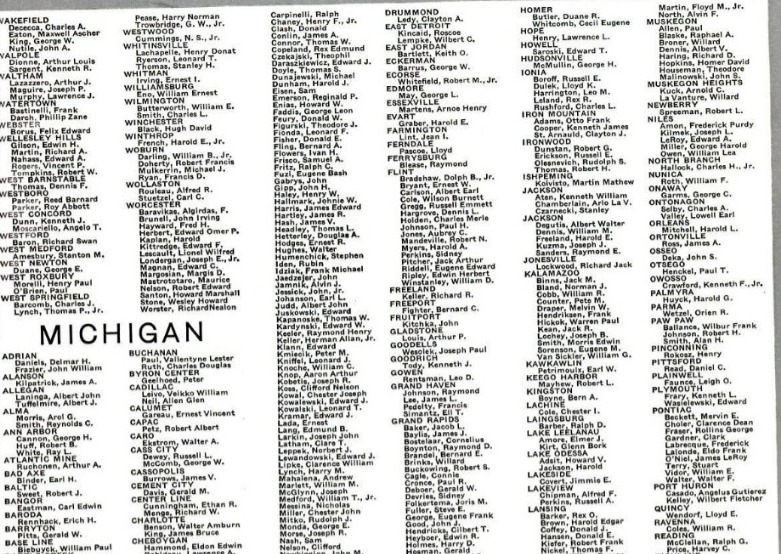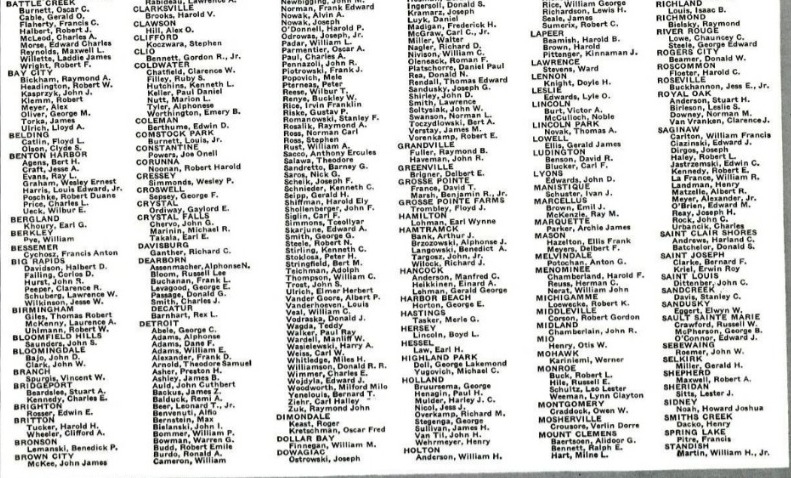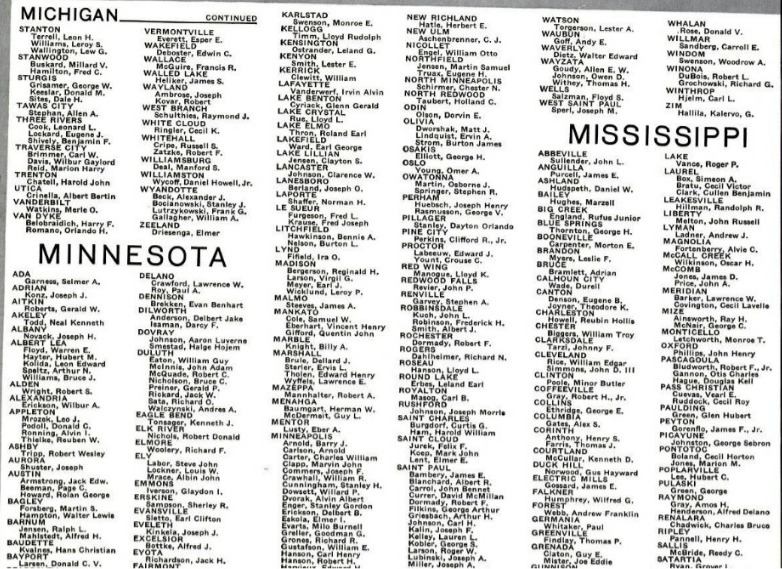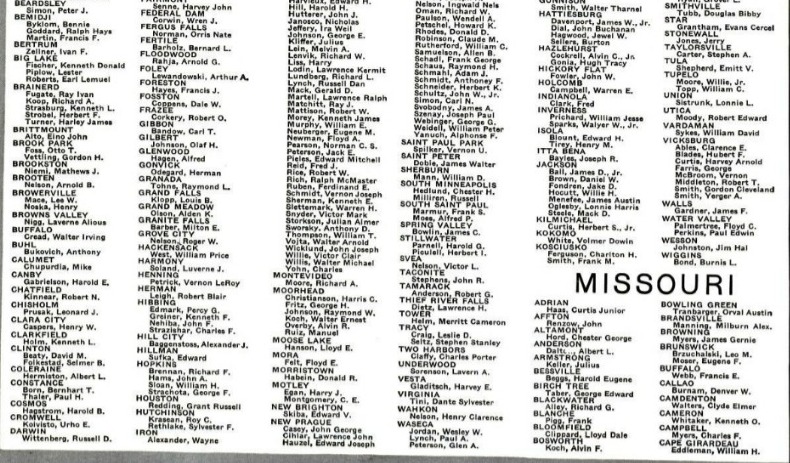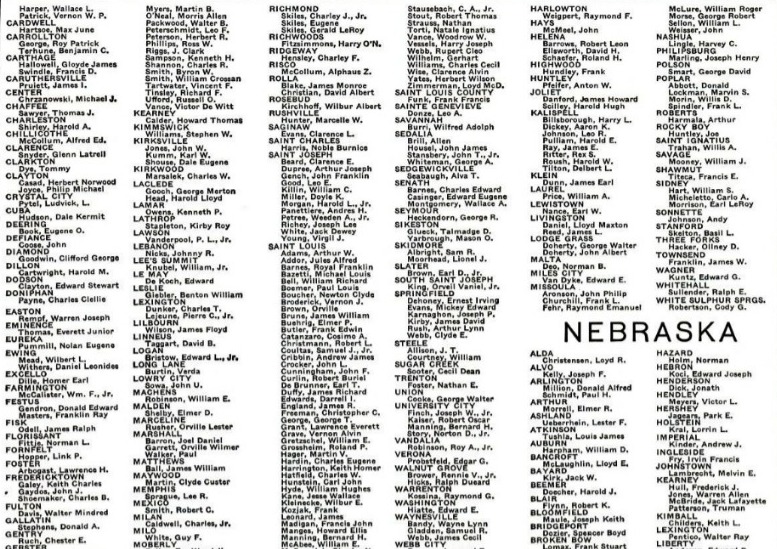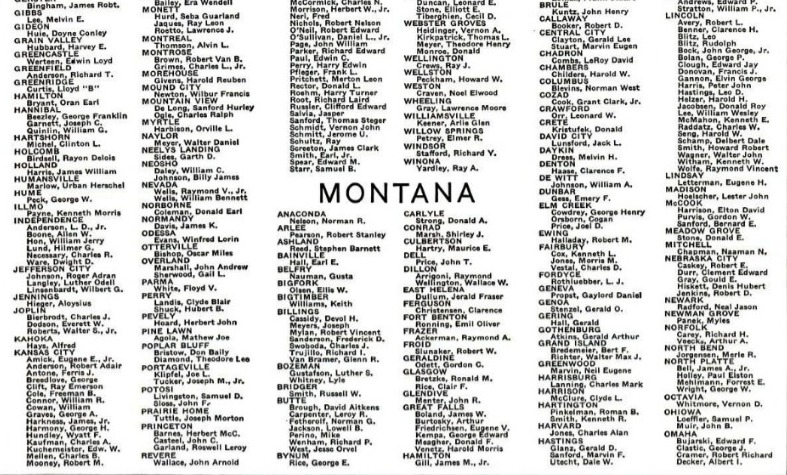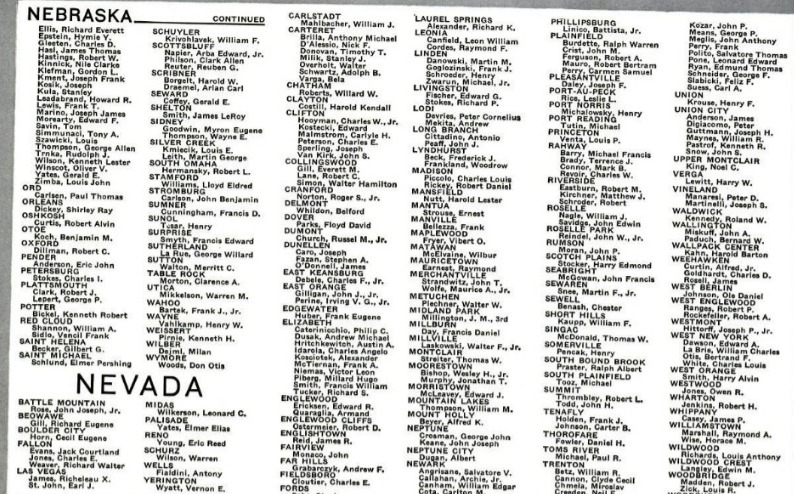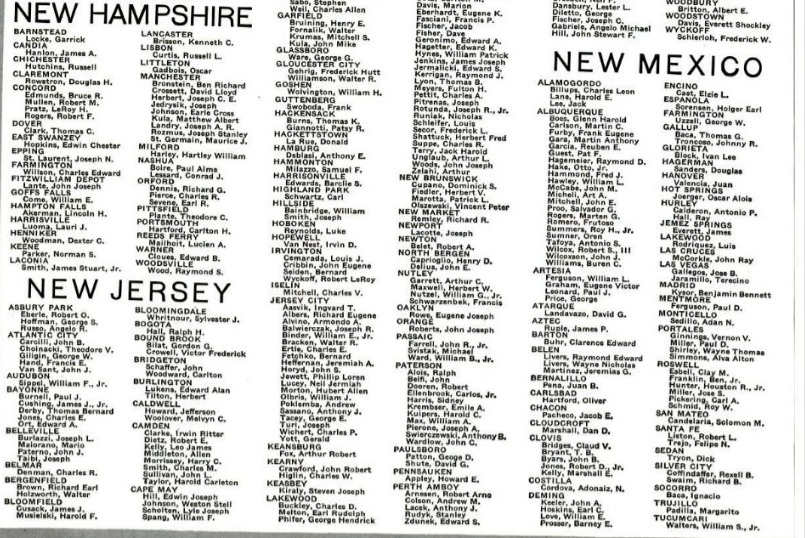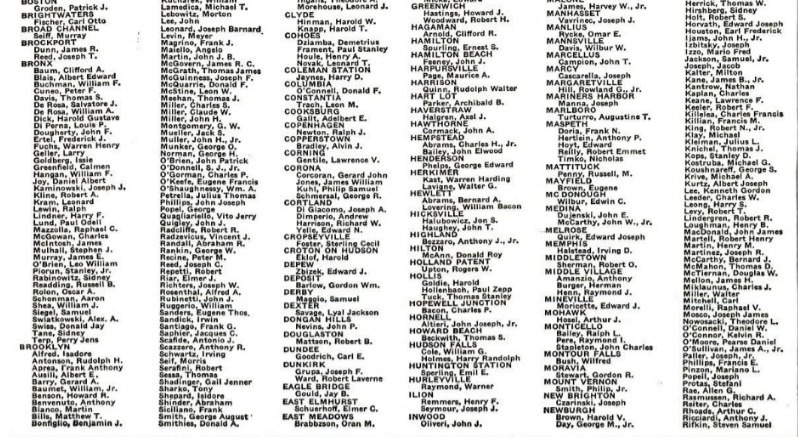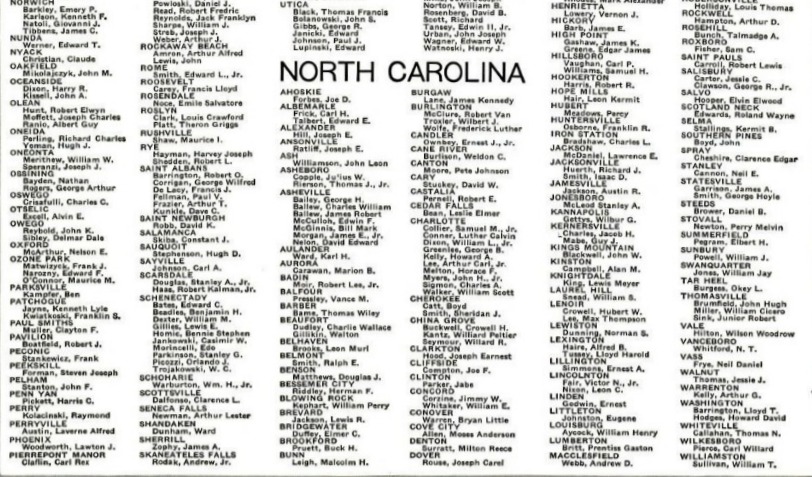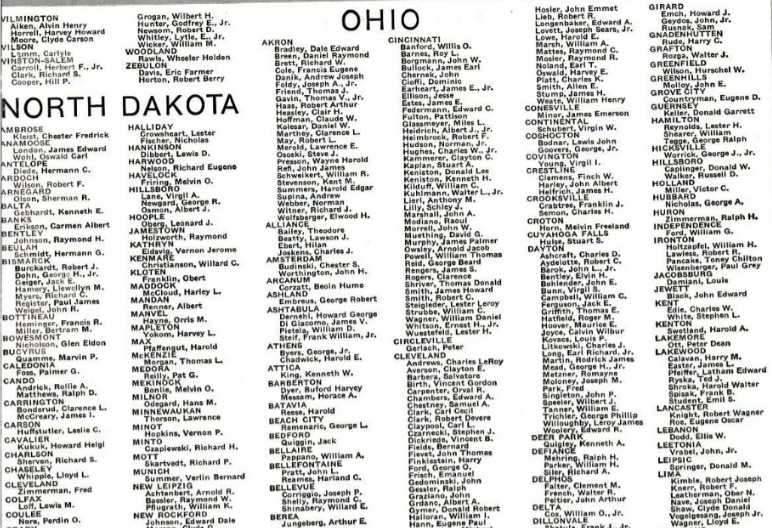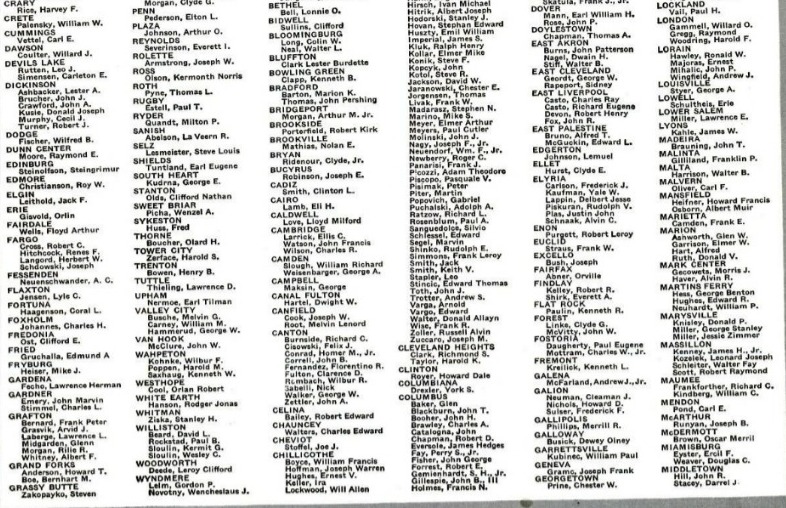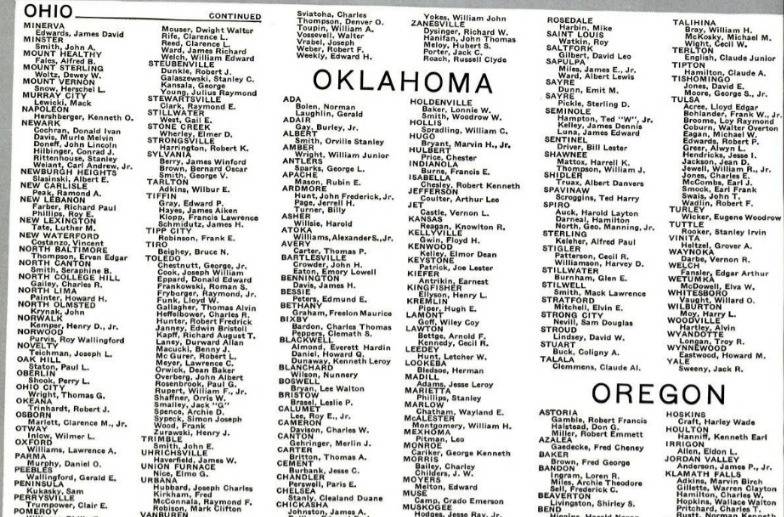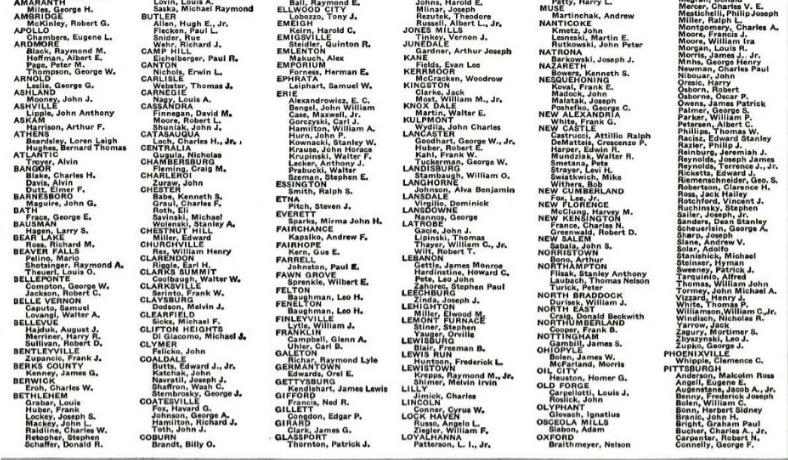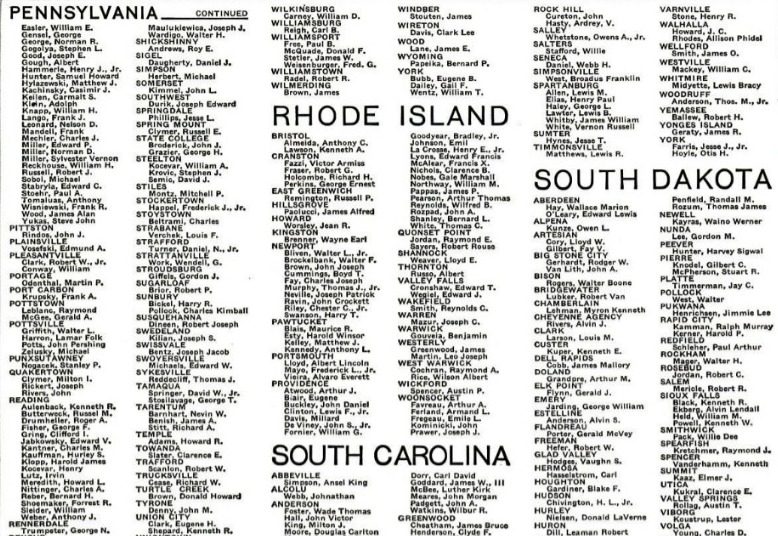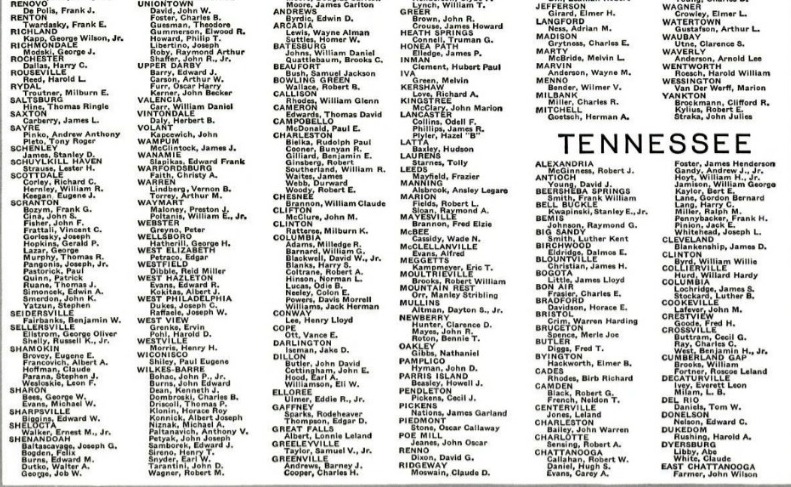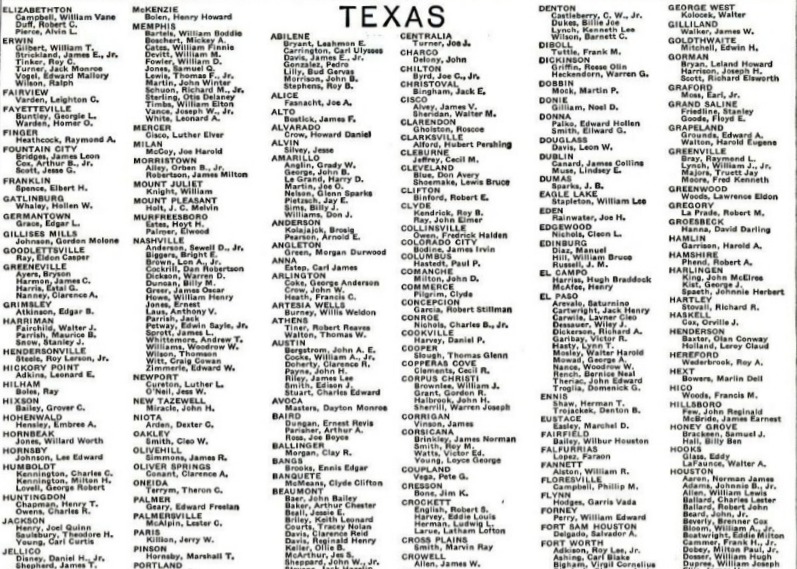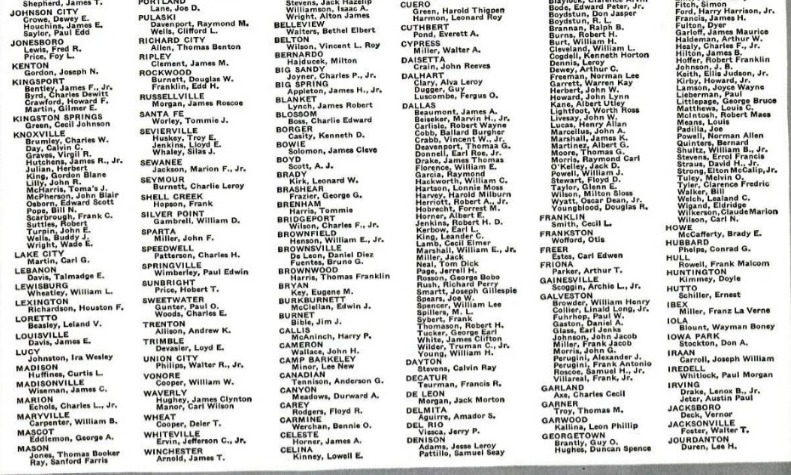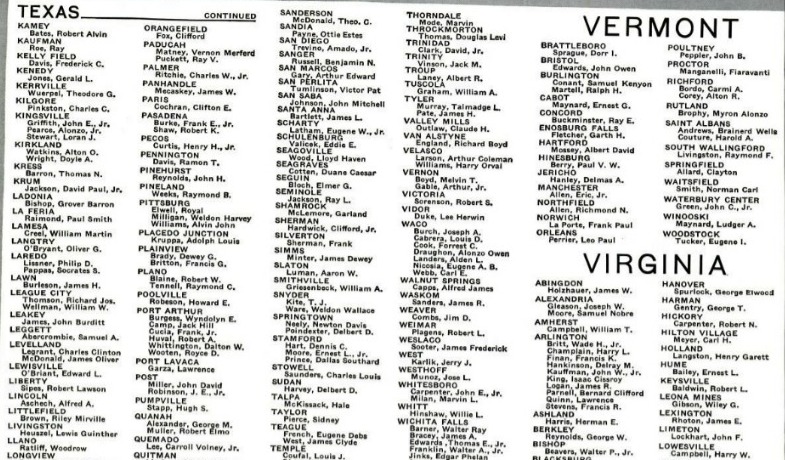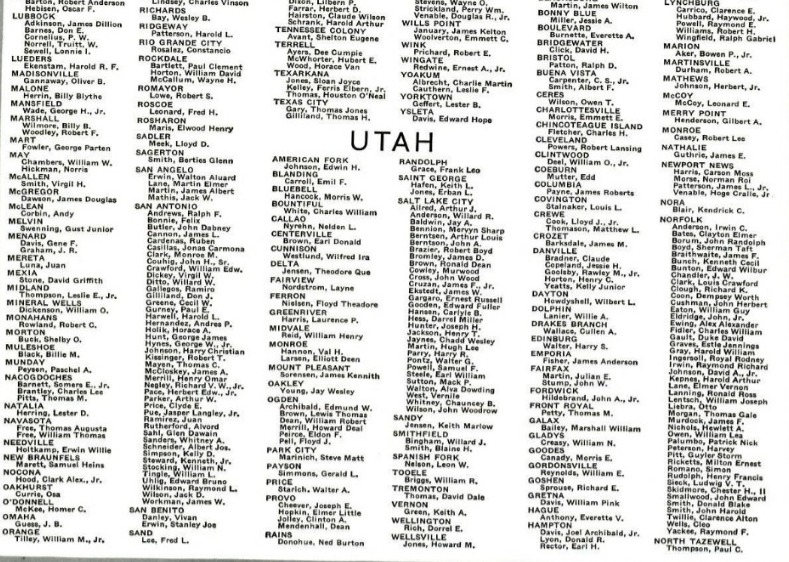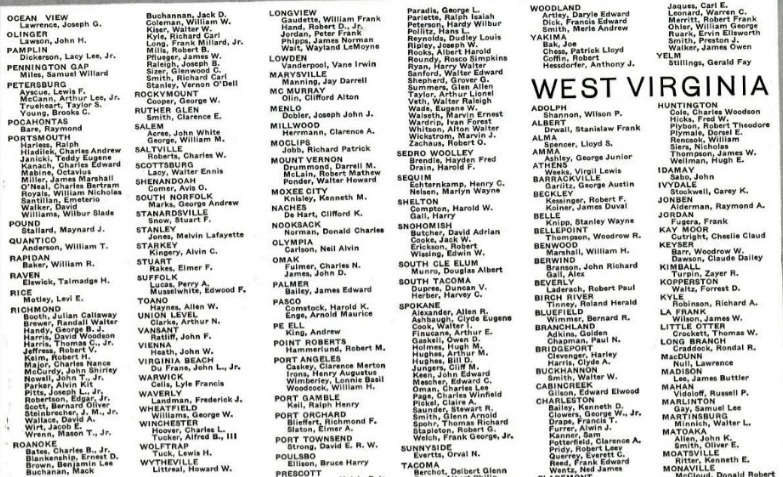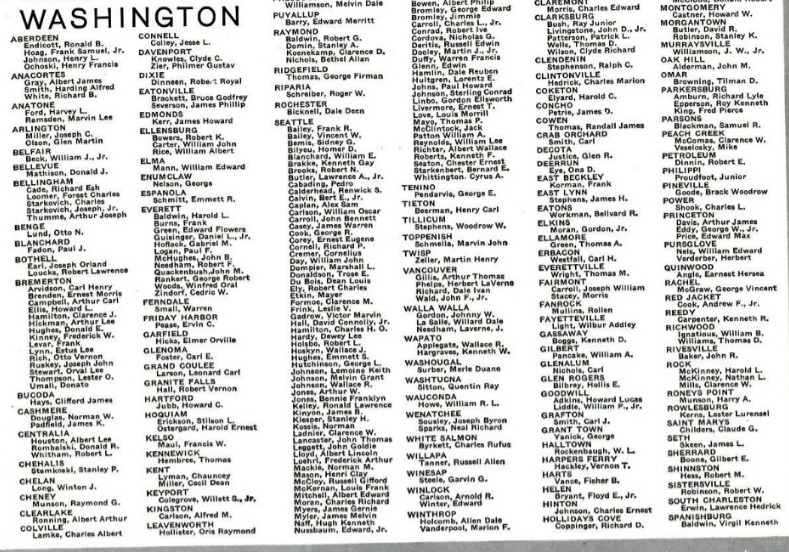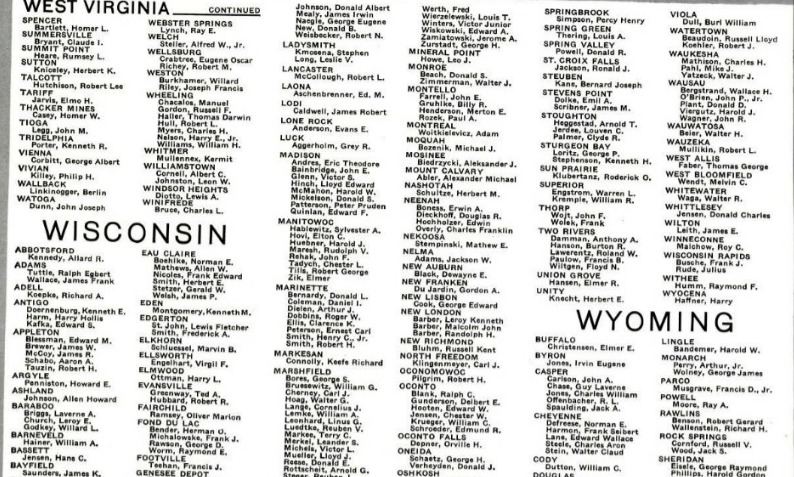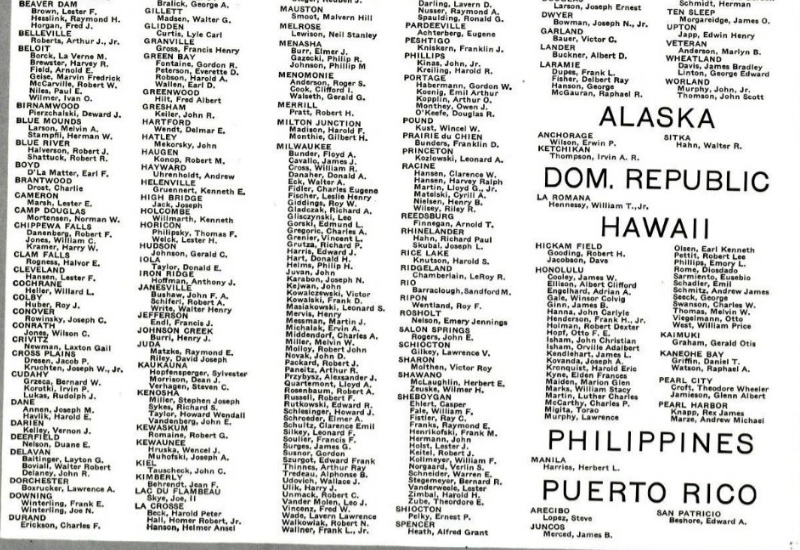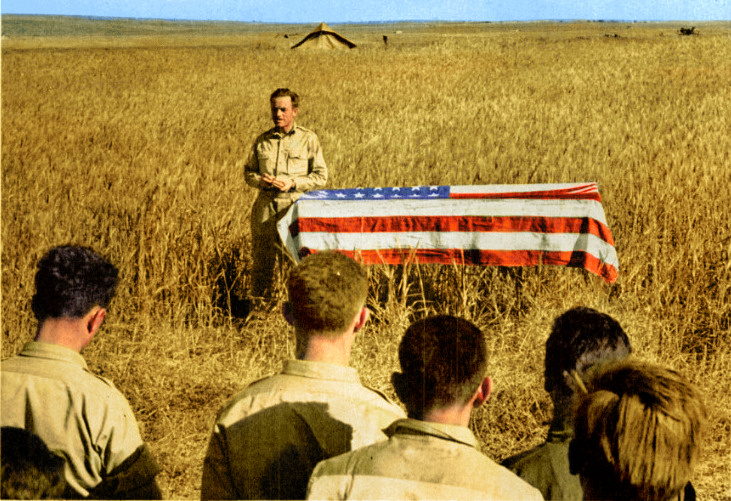It lives in the hearts of those who have received the telegrams from the Adjutant General
That is the list. Those are the boys who have gone over the Big Hill.
Those are the names in the telegrams flashed over the long, sagging wires:
Regret to inform you… your son… killed in action…
Along the crooked stone walls of Connecticut and over the lush valleys of Pennsylvania and down into the sultry cottonlands of Georgia:
And around the rippled lakes of Wisconsin to the cool, blue northland, and in straight lines out over the hazy Dakotas, over Kansas:
Leaping and bounding across the Rockies to the yellow deserts of Arizona, and onward, to the miraculous, green Pacific orchards, where the water pumps chug all day in the sun:
The roll call of the Adjutant General.
Maybe you haven’t got this message yet, maybe you haven’t heard from the Adjutant General: well, you are just lucky – you can’t know what it is to have your boy go over the Big Hill:
You can’t know what it is to open the door of the garage and see the car he helped out buy – or to sit on the bed in his old room and see the picture of his girl there on the dresser, and his empty shoes in the closet – or to wander down into the cellar, as if looking for him, and see the holes he drilled in the cellar stairs when he was just a kid, and you bawled him out for it. You can’t know any of this.
But maybe it would be a good idea to try to imagine it. For the people who get these telegrams ask a question: and this question is one that everybody in America must answer, and this question is, WHY?
What is it that called them over the Big Hill? What is the purpose?
When you talk about purpose, though, you have to make a distinction. It doesn’t make any sense to mix up the purposes of the dead with the purposes of the living. The boys didn’t go over the Big Hill in a philosophical mood. They didn’t say, This or that is at stake, so now I am going to die for it. That isn’t the way it happens at all.
It happens unexpectedly, when he is doing something he learned at Fort Benning, and learned all over again on maneuvers in Alabama, over and over and over; and he is swearing at the machine gun, which has jammed, or at the heat, or at the cold, and he wants to tear the guts out of that damned bastard in the pillbox across the gully – and then it happens, suddenly, so that even if he gave a hoot in hell about the purpose, he wouldn’t have time to think about it, let alone say what it is.
And if there was even an instant when he had a chance to think, his thoughts would have been so simply that we could understand them, let alone write them down:
For in that instant, he would see his home, and he would see Mom bending over the stove and hear the kid brother in the yard; he would see his whole town and the movie theater and the baseball diamond and the cars, and hear the voices of the girls, and remember the first girl he kissed, and even more the last one; he would all in an instant relive that life and know that it was a good life, and if they wanted to call that life “freedom,” that would be Okay with him:
But it doesn’t matter what he himself would call that life, or how he would define the purpose, because he is not a part of it anymore, it goes on without him, and whatever he was in that community is lost, except the monument with his name on it, and the memory of him and what people do in the name of his memory.
And yet this is not true of us who are living. We still have the town and the movie theater and the baseball diamond, and we have his memory. So, it matters a great deal what we say the purpose is, it makes all the difference in the world; indeed, it is for us to decide whether he died for the fulfilment of a purpose, like the boys of the American Revolution, or whether he died for the fulfilment of practically nothing, like the boys of World War I. The dead boys will become what we make them.
So, we who are living must know our purpose and pursue it.
And the chief fact that we must face in pursuing it is that the U.S. has always been different from other countries. And the chief decision we have to make is whether we intend to maintain this difference, or to abolish it.
The U.S. differs from other countries because it was founded for the purpose of achieving a particular and definite goal in the evolution of man. For until the U.S. was established, men found their highest purposes in the Church, in the arts, in institutions of various kinds, and they expected their nations to support these purposes, but they never conceived of a nation having such a special purpose of its own:
This was the new and unique idea introduced by the U.S. into the family of nations – a purpose stated in the very beginning, and stated over and over again by the leaders of our people;
And this purpose for which our nation was founded, and in which our nation has persisted, is TO MAKE MEN FREE;
Yes, that is what the Declaration of Independence says, that is what they signed 167 years ago, that all men are created free and equal – not just our own people, but all people:
And that is what Thomas Jefferson said:
Nor are we acting for ourselves alone, but for the whole human race.
And, later, Andrew Jackson said the same thing – he said:
Providence… has chosen you as the guardians of freedom to preserve it for the benefit of the human race.
And, still later, Abraham Lincoln called the cause of freedom in the U.S. “the last best hope of earth;” and when Mr. Lincoln spoke about the boys who died at Gettysburg, he summed up the destiny of the U.S. in words that every American knows almost by heart: He said:
It is for us, the living… to be here dedicated to the great task remaining before us – that from these honored dead we take increased devotion to that cause for which they gave the last full measure of devotion; that we here highly resolve that these dead shall not have died in vain; that this nation, under God, shall have a new birth of freedom; and that government of the people, by the people, for the people, shall not perish from the earth.
Yes, this is the dream we have always had, that in founding the United States of America we were summoning all the people of the earth into the green pastures of liberty.
And only in the last 25 years, only since the World War, have we abandoned this dream; only in our generation have we said, To hell with this purpose. Even the boys who are listed here might have said that. We taught them to.
And we must decide now whether that is the course to follow; whether to abandon the dream and try to be like other nations.
Or to rekindle within ourselves the great purpose of liberty, the great light that shone behind the Big Hill for all the American boys who have gone over it except these particular boys of ours.
And surely our only answer can be, Rekindle the light! For otherwise we shall be sending them over the Big Hill into darkness.
For there is such a thing as freedom in the world, and there is such a thing as slavery; and to abandon now the American dream is to say that we don’t care whether we are surrounded by slavery, or not;
But our inescapable purpose is to strengthen freedom; to strengthen it first at home, where the boys see it so clearly – and to push it also outward, to other nations, farther and always farther, around the smoking and tumultuous earth.
This is the answer to the question that is raised by the people who get these telegrams from the Adjutant General.
And these people know this answer, they know what Lincoln meant, they know what our purpose is, they cannot doubt it:
For these telegrams aren’t really written on paper at all, but on the hearts of the people who get them;
They are written on the hearts of the mothers and fathers, the sisters, the brothers, the wives, the sweethearts – the lonely people – of the U.S.:
And when these people open the telegrams, it becomes perfectly clear, in an instant, that the Adjutant General doesn’t really send them anyway – that he only signs them;
That God sends them, about His own boys, for His own reasons, and will continue to send them and will give us no respire and no rest until we have discovered His reasons and done a job for the reasons we have discovered.
The great light of America is rekindled in the breasts of those who have clutched these telegrams in their fists in that terrible moment when they come.
